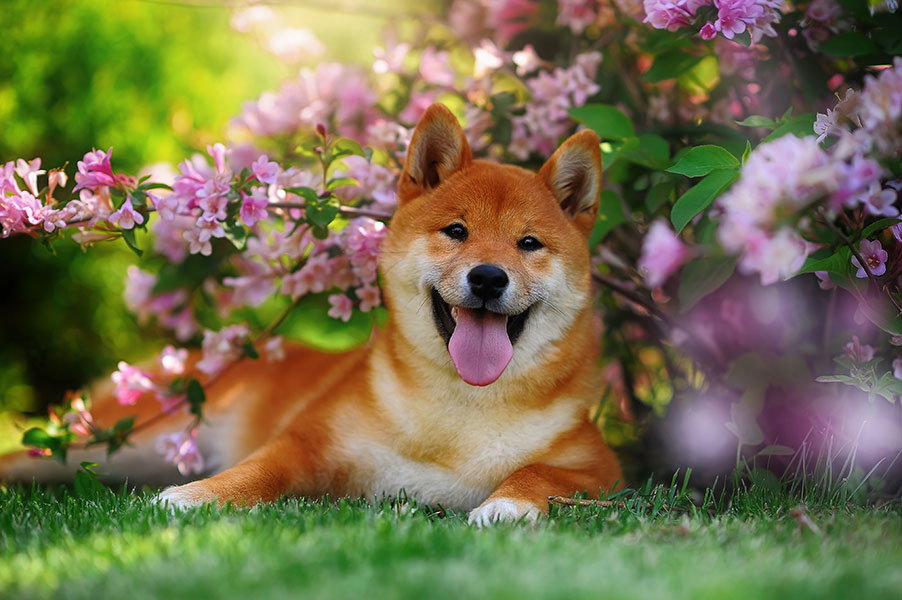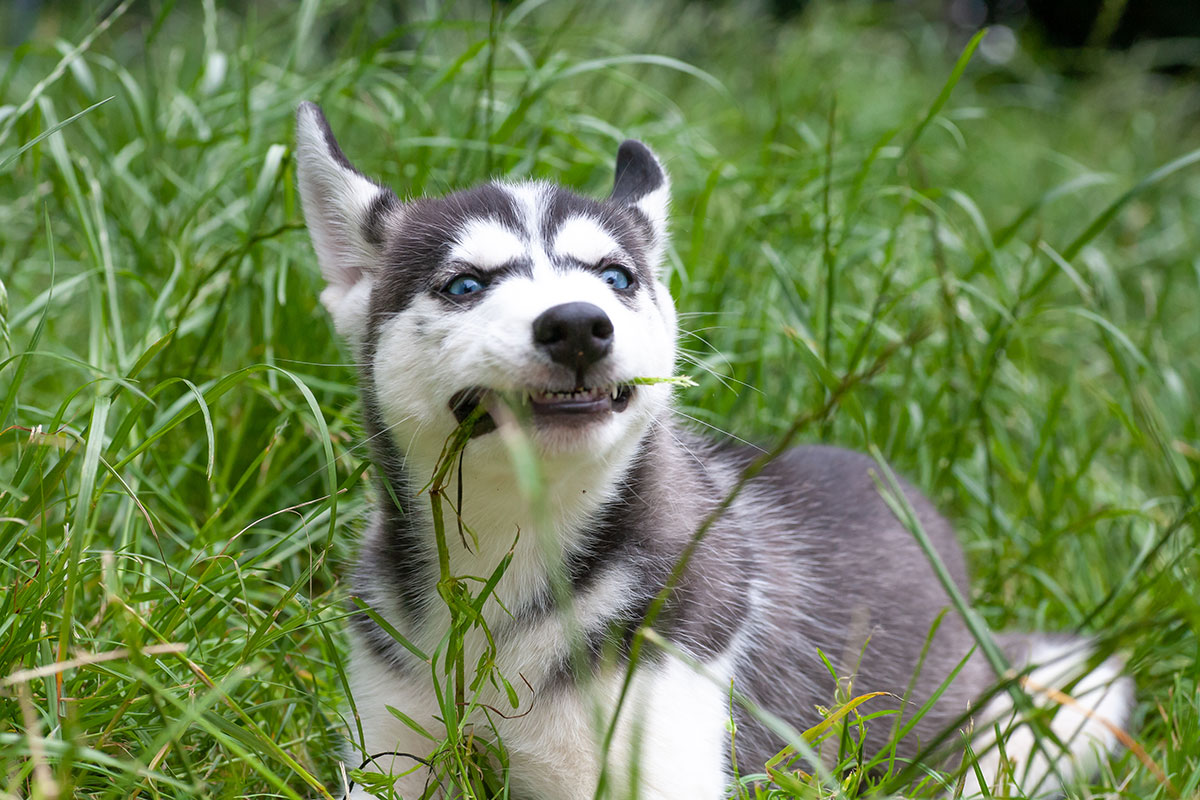Dogs eating grass is a common sight for many dog owners. You might see your furry friend happily munching on a patch of green during a walk in the park or even in your own backyard. While it might seem a bit odd, in most cases, it’s perfectly normal behavior. But why do they do it? There are several reasons why your dog might be attracted to those blades of grass.
Possible Reasons:
- Instinctual Behavior: Some experts believe that grass-eating is simply an instinctual behavior inherited from their wild ancestors. Wolves and other wild dog-like mammals often consume the stomach contents of their prey, which includes plant matter. So, even though your pampered pooch doesn’t have to hunt for their food, that ancestral instinct to consume plants might still be present.
- Boredom or Anxiety: Just like humans might snack when bored or stressed, dogs might turn to grass-eating out of boredom or anxiety. If your dog isn’t getting enough mental or physical stimulation, they might try to find other ways to occupy themselves. Ensure your dog gets plenty of exercise, playtime, and interactive toys to keep them happy and entertained. A tired dog is less likely to engage in destructive or unusual behaviors.
- Taste and Enjoyment: Believe it or not, some dogs simply like the taste of grass! It might be the fresh, slightly sweet flavor or the interesting texture that appeals to them. Just like some people enjoy a fresh salad, your dog might enjoy a bit of grass now and then.
- Microbiome: Grass and other plants can carry soil-based bacteria, which may positively impact the microbiome.
- Improving Digestion: Grass contains fiber, which can aid in digestion and help regulate bowel movements. Think of it as nature’s roughage! If your dog feels a bit constipated or has an upset stomach, they might instinctively eat grass to help things move along. Just like humans might eat a high-fiber diet to stay regular, dogs might turn to grass for the same reason.
- Nutritional Deficiencies: Although less common with today’s commercially prepared dog foods, a lack of certain nutrients in your dog’s diet could lead them to seek out grass. In the past, when dogs weren’t fed balanced diets like they are today, they might have eaten grass to compensate for missing vitamins or minerals. If you suspect this might be the case for your dog, it’s important to consult your veterinarian. They can help you adjust your dog’s diet or recommend supplements to ensure they’re getting all the essential nutrients.
Why do dogs eat grass when sick?
It’s a common belief that dogs eat grass to induce vomiting when they’re feeling unwell. While this can happen, it’s not always the case. Sometimes, a dog might have an upset stomach and then eat grass, which can further irritate their stomach and lead to vomiting. However, research suggests that most dogs don’t appear sick before eating grass, and only a small percentage actually vomit afterward (Sueda et al., 2008).
As Hart (2008) explains, grass-eating could be related to various factors, including dietary needs, instinct, or even self-medication for an upset stomach. If your dog is frequently vomiting after eating grass, or showing other signs of illness, such as diarrhea, lethargy, or loss of appetite, it’s essential to consult your veterinarian to rule out any underlying medical conditions.
Is it Safe for My Dog to Eat Grass?
In most cases, eating grass is perfectly safe for dogs. However, there are a few things to keep in mind:
- Pesticides and Herbicides: If you treat your lawn or garden with chemicals, make sure your dog doesn’t have access to those areas. Pesticides and herbicides can be toxic to dogs.
- Types of Grass: Some types of grass might be more appealing to dogs than others. If you notice your dog seems particularly attracted to a certain type of grass, it’s a good idea to make sure it’s not a potentially harmful variety.
- Quantity: While a little bit of grass-eating is usually fine, excessive grass consumption could lead to digestive issues. If you notice your dog is eating a lot of grass, it’s worth talking to your vet.
What if My Dog is Eating Grass Excessively?
If you’re concerned about your dog’s grass-eating habits, here are a few things you can try:
- Increase Exercise and Enrichment: Make sure your dog is getting enough physical activity and mental stimulation. This can help reduce boredom and anxiety, which might be contributing to grass-eating.
- Improve Diet: Talk to your vet about your dog’s diet. They can help you ensure your dog is getting all the necessary nutrients.
- Provide Alternatives: Offer your dog safe and healthy alternatives to grass, such as chew toys or vegetables like carrots or green beans.
When to Worry:
While grass-eating is usually harmless, there are a few situations where you should consult your veterinarian:
- Frequent Vomiting: If your dog is eating grass and vomiting frequently, it could indicate an underlying medical condition that needs attention.
- Changes in Appetite or Behavior: Sudden changes in your dog’s appetite, energy levels, or bathroom habits should be checked out by a vet, especially if accompanied by grass-eating.
- Eating Grass Treated with Chemicals: Pesticides and herbicides can be toxic to dogs. Ensure your dog only grazes on untreated grass.
Tips for Dog Owners:
- Provide a Balanced Diet: Feed your dog high-quality dog food that meets their nutritional needs.
- Offer Plenty of Exercise and Enrichment: Keep your dog active and engaged with walks, playtime, and interactive toys.
- Safe Grazing: If your dog likes to graze, ensure they have access to a safe, chemical-free area.
Remember: If you’re ever concerned about your dog’s grass-eating behavior, it’s always best to consult your veterinarian for advice.
References
- American Kennel Club. (n.d.). Why do dogs eat grass?
- Hart, B. L. (2008). Why do dogs and cats eat grass? Veterinary Medicine, 43(12), 648.
- Landsberg, G. M., Hunthausen, W., & Ackerman, L. (2013). Behavior problems of the dog and cat. Elsevier Health Sciences.
- Sueda, K. L. C., Hart, B. L., & Cliff, K. D. (2008). Characterisation of plant eating in dogs. Applied Animal Behaviour Science, 111(1-2), 120-132.



